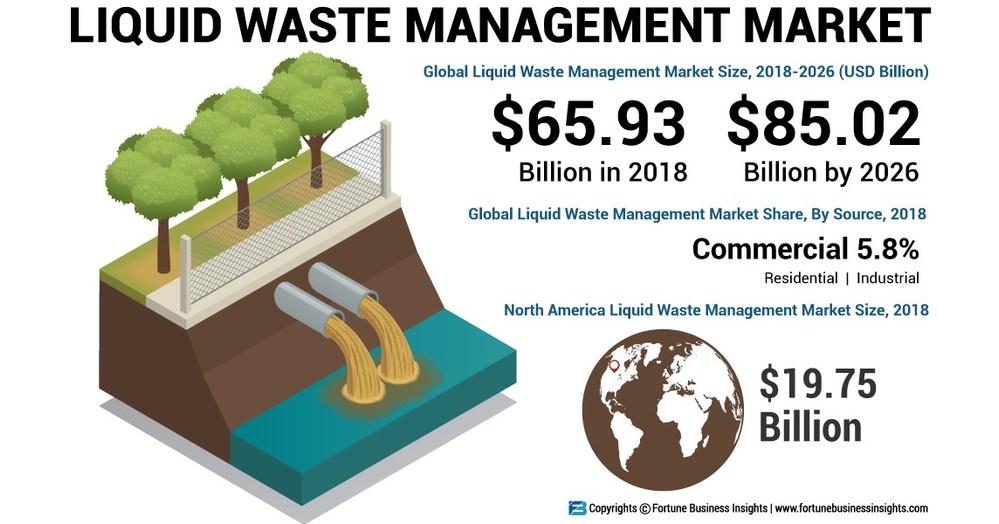The Buzz on Reclaim Waste
Table of ContentsNot known Incorrect Statements About Reclaim Waste Reclaim Waste Things To Know Before You Get ThisUnknown Facts About Reclaim WasteThe 7-Minute Rule for Reclaim WasteThe Ultimate Guide To Reclaim Waste
Domestic sewer waste refers to the waste and products from a property septic tank. The correct management and disposal of residential sewage waste call for fluid waste to be transferred to a sewer treatment plant where the appropriate approaches and devices are used to detoxify and dispose of waste.
Industrial waste often includes possible risks, such as combustible products or a mix of fluid and strong waste products, and requires an extra advanced and in-depth disposal procedure. The disposal of commercial waste typically entails the purification of waste before transportation to make certain safe and appropriate disposal. Industrial waste is produced from results and drainage of industrial procedures and manufacturing.
This type of waste can not use the exact same sewer management transportation or processes as septic or industrial fluids. The hazardous waste monitoring procedure requires the inspection and testing of fluid waste prior to it undertakes the disposal procedure (liquid waste removal melbourne). Overflow waste is the liquid waste that comes from overflow and excess stormwater in extremely inhabited areas or cities
Overflow waste can cause contamination and flooding if not dealt with effectively. Guaranteeing correct waste monitoring can avoid disasters and lower environmental harm.
The Ultimate Guide To Reclaim Waste
Contact PROS Providers today to discover our waste management and disposal services and the appropriate means to care for the liquid waste you generate.
(https://ameblo.jp/reclaimwaste1/entry-12874802223.html)
Do you know what takes place to your water when you disengage, purge the commode or drain pipes the cleaning machine? No? Well, it's worth recognizing. This so-called 'wastewater' is not only a crucial resource however, after treatment, will certainly be launched to our land, waterways or the sea. Utilized water from commodes, showers, bathrooms, cooking area sinks, laundries and commercial procedures is recognized as wastewater.

water utilized to cool equipment or tidy plant and tools). Stormwater, a type of wastewater, is overflow that moves from agricultural and urban locations such as roofings, parks, gardens, roadways, paths and rain gutters right into stormwater drains, after rain. Stormwater streams neglected straight to regional creeks or rivers, eventually getting to the ocean.
The Main Principles Of Reclaim Waste
In Queensland, many wastewater is treated at sewer treatment plants. Wastewater is transported from residential or industrial sites through a system of drains and pump terminals, recognized as sewage reticulation, to a sewage therapy plant.
The Department of Natural Resources recommends local governments concerning managing, operating and preserving sewage systems and therapy plants. In unsewered locations, city governments may need owners to mount individual or household sewage treatment systems to treat domestic wastewater from commodes, cooking areas, restrooms and washings. The Department of Natural Resources authorises the usage of house systems when they are proven to be reliable.
In some new subdivisions, treatment of some stormwater to remove litter, sand and crushed rock has begun using gross contaminant traps. Wastewater treatment occurs in 4 phases: Removes solid matter.
Makes use of little living microorganisms understands as micro-organisms to break down and get rid of continuing to be liquified wastes and great particles. Micro-organisms and wastes are incorporated in the sludge.
Reclaim Waste Can Be Fun For Everyone
Nutrient removal is not offered at all sewage treatment plants since it calls for pricey specialised equipment. Clear fluid effluent produced after treatment might still consist of disease-causing micro-organisms - liquid waste removal.

This generally indicates wastewater has to be dealt with or impurities removed prior to it can be discharged go to the website to rivers. A lot of wastewater streams into the sewage system. Under the Act, regional governments carry out approvals and permits for ecologically relevant tasks (Ages) involving wastewater launches that might have a local influence. The department provides approvals and permits to Periods including wastewater launches that may have a local or statewide effect.
The Only Guide to Reclaim Waste
Or else, examples are considered laboratory evaluation. Usually many tests are needed to develop the levels of each of the different contaminants such as oils, heavy steels and chemicals in water. Surveillance provides factual information about water high quality and can verify that licence conditions are being satisfied. The info gotten via monitoring offers the basis for making water high quality choices.
 Taran Noah Smith Then & Now!
Taran Noah Smith Then & Now! Ashley Johnson Then & Now!
Ashley Johnson Then & Now! Michael Jordan Then & Now!
Michael Jordan Then & Now! Brooke Shields Then & Now!
Brooke Shields Then & Now! Bill Murray Then & Now!
Bill Murray Then & Now!